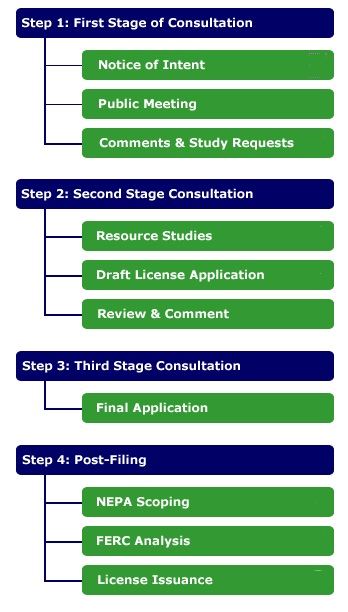In order for DESC to operate the Stevens Creek Hydroelectric Project, they must obtain and retain an operating license from the Federal Energy Regulatory Commission (FERC). The Federal Power Act (FPA) gives FERC the exclusive authority to issue licenses to construct, operate, and maintain certain non-federal hydropower projects. A  license is issued for a specific period of time (typically 40-50 years), and the Licensee must reapply for a new license prior to the expiration of an existing license. This application process is called relicensing. The relicensing process addresses not only a project’s electrical generation, but also the natural resources present at a project that may be affected, both positively and negatively, by the project’s continued operation. FERC is required by federal law to consider both power and non-power issues when relicensing hydroelectric facilities.
license is issued for a specific period of time (typically 40-50 years), and the Licensee must reapply for a new license prior to the expiration of an existing license. This application process is called relicensing. The relicensing process addresses not only a project’s electrical generation, but also the natural resources present at a project that may be affected, both positively and negatively, by the project’s continued operation. FERC is required by federal law to consider both power and non-power issues when relicensing hydroelectric facilities.
DESC is using FERC’s Traditional Licensing Process (TLP) to relicense the Stevens Creek Project. The TLP involves extensive consultation with resource agencies, the public, and other stakeholders regarding studies and study results. The Licensee compiles the study results in a draft license application that is then distributed for public review. The Licensee receives comments and develops a final license application for filing with FERC. Once FERC has the final license application, they review the application to ensure all requirements and regulations are met. FERC then begins the public scoping process pursuant to the National Environmental Policy Act of 1969 (NEPA). The scoping process helps identify issues and reasonable alternatives as well as determines if additional studies or other information are needed.
Additional information regarding hydroelectric project relicensing is available on the FERC website at www.ferc.gov.
